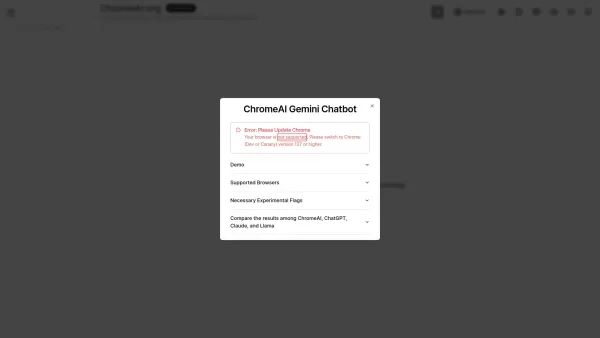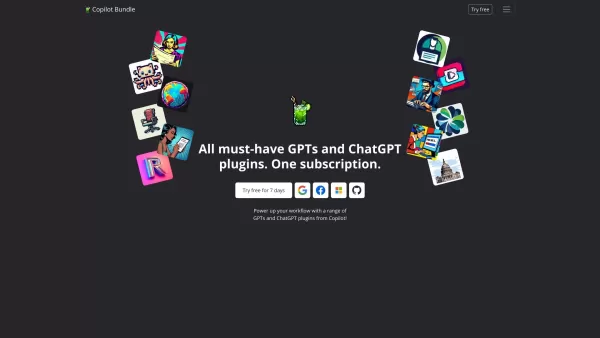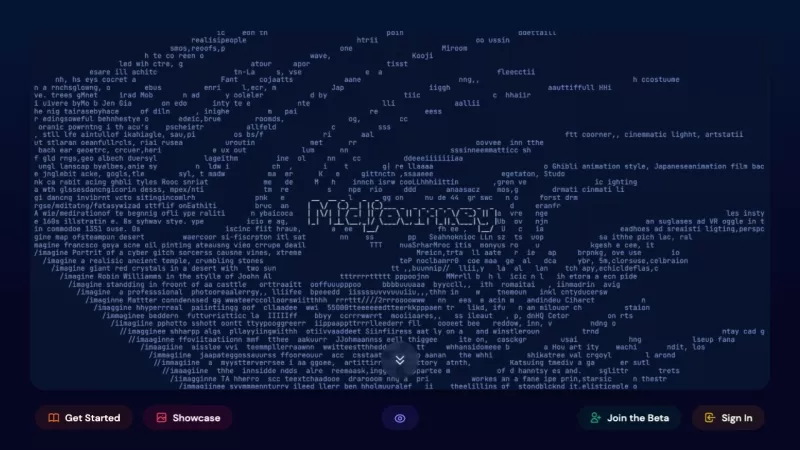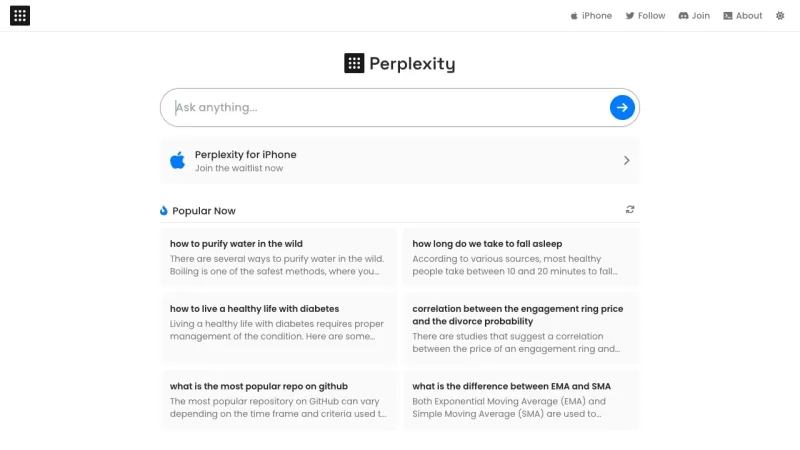Billie Eilish's Eerie Rendition of "Por Que Te Vas": A Deep Dive Analysis

 May 3, 2025
May 3, 2025

 PeterThomas
PeterThomas

 8
8
Billie Eilish, celebrated for her unique vocal style and her ability to blend different music genres, has taken fans by surprise with her cover of the iconic Spanish song "Por Que Te Vas." Although not officially released by Eilish herself, this rendition gives us a peek into her expansive artistic range and her deep appreciation for a variety of musical influences. In this article, we'll dive into the song's background, explore Billie Eilish's unique take on it, and discuss why this unexpected cover has captured the hearts of listeners everywhere.
Unpacking "Por Que Te Vas": A Timeless Spanish Ballad
The History of "Por Que Te Vas"
"Por Que Te Vas," which translates to 'Why are you leaving?' was penned by José Luis Perales and became an international sensation in 1974 when performed by Jeanette, a singer of British descent living in Spain. The song's fame was further amplified when it was included in the film "Cría Cuervos" (Raise Ravens), directed by Carlos Saura.
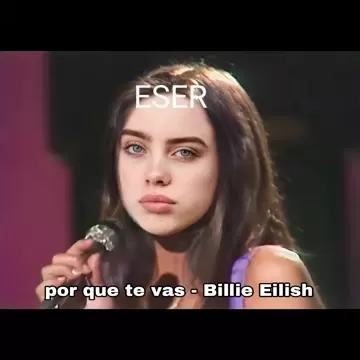
The simplicity and emotional depth of the lyrics, combined with Jeanette's tender vocals, struck a chord with listeners around the globe. The song has been translated into multiple languages and covered by numerous artists, solidifying its place as an enduring classic. The original's success can be attributed to its timeless themes and its ability to evoke universal emotions of love and loss.
The lyrics narrate a tale of heartbreak and abandonment, with the singer questioning the departure of her lover while conveying her deep sense of sorrow and yearning. The song's universal appeal lies in its exploration of lost love, which resonates with people from all walks of life.
- Loss and longing: The lyrics poignantly capture the pain of separation and the desire for a lost lover's return.
- Questioning and uncertainty: The singer's quest for answers about the departure adds layers of emotional complexity.
- Emotional vulnerability: The raw honesty in the lyrics makes the singer's experience universally relatable.
The song's success transcended geographical boundaries, becoming a staple in Spanish-speaking countries and beyond. Its lasting popularity is a testament to music's power to convey profound human emotions.
Billie Eilish's Haunting Interpretation
Billie Eilish's rendition of "Por Que Te Vas," available only through fan recordings, offers a fresh and haunting take on the classic. Eilish is renowned for her distinctive vocal style, characterized by breathy tones and a haunting quality, which she uses to great effect in this cover. Her version strips the song down to its emotional core, providing a modern twist on the original's melancholic theme.
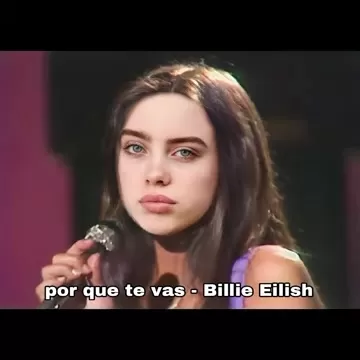
While the audio quality of these unofficial recordings can vary, the emotional impact of Eilish's performance is undeniable. Fans have praised her ability to connect deeply with the song, infusing it with her unique style while preserving the essence of the original. This cover not only showcases her versatility but also her willingness to explore different genres and musical styles.
- Vocal style: Eilish's breathy, emotive vocals add a new layer of depth to the song's inherent sadness.
- Minimalist arrangement: The focus on her voice allows the lyrics to take center stage.
- Contemporary feel: Despite its classic roots, Eilish's version feels fresh and relevant to today's audience.
"Por Que Te Vas" Lyrical Analysis: A Journey Through Heartbreak
The lyrics of "Por Que Te Vas" are the heart of its enduring appeal, painting a vivid picture of heartbreak and the raw emotions tied to the end of a relationship. Each verse delves into different facets of the singer's pain and confusion, making the song deeply relatable.
The song opens with a stark contrast between the sunny day outside and the singer's inner turmoil:
Hoy en mi ventana brilla el sol
Y el corazón se pone triste contemplando la ciudad
Porque te vas
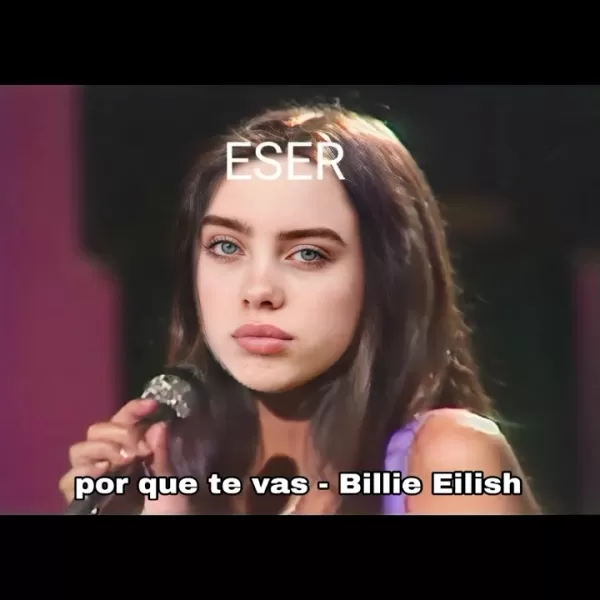
These lines set the tone, juxtaposing the bright, vibrant city with the singer's sorrow. The central question, 'Why are you leaving?' echoes throughout the song, resonating with anyone who has experienced lost love.
As the song continues, the singer reflects on the broken promises and cherished memories:
Todas las promesas de mi amor se irán contigo
Me olvidarás, me olvidarás
These lines express the singer's fear of being forgotten and the realization that all the promises made will vanish with the departing lover. The repetition of "Me olvidarás" emphasizes her anxiety and despair.
The chorus amplifies the emotional weight:
Junto a las manillas de un reloj espero en vano
Todas las horas que quedaron por vivir
Esperarán
Waiting in vain beside the hands of a clock symbolizes the passage of time and the unfulfilled future. The lyrics suggest that all the hours planned to be spent together will now remain unlived.
The song concludes with a poignant expression of helplessness:
Y con esta soledad lloraré igual que un niño
Por qué te vas
These final lines bring the song full circle, depicting the singer's raw vulnerability and profound sense of loss. The comparison to crying like a child underscores the depth of her pain.
- Contrast and imagery: The juxtaposition of bright and dark images enhances the emotional impact.
- Repetition: The repeated phrases and questions amplify the singer’s feelings of confusion and despair.
- Emotional honesty: The raw and unpretentious lyrics make the song universally relatable.
The Enduring Appeal of "Por Que Te Vas"
Why This Song Continues to Resonate
The timeless appeal of "Por Que Te Vas" lies in its ability to connect with universal emotions of love, loss, and longing. The song's themes transcend generations and cultures, resonating with listeners of all ages. Its simple yet powerful melody and relatable lyrics have cemented its status as a classic, continuously attracting new audiences.
Factors contributing to the song's lasting popularity include:
- Universal themes: The song taps into emotions common to the human experience, making it relatable to everyone.
- Simple melody: The melody is easy to remember and sing along to, enhancing its widespread appeal.
- Cultural significance: The song holds a significant place in the cultural fabric of Spanish-speaking countries, carrying historical and emotional weight.
Covers and reinterpretations, like Billie Eilish's, keep the song relevant and introduce it to new listeners. These versions breathe new life into the classic, showcasing its versatility and timelessness.
The song's social impact is significant, serving as a soundtrack for moments of heartbreak and reflection. Its ability to evoke strong emotions and connect people through shared experiences is a testament to the power of music.
The cultural context of the song also contributes to its enduring appeal. Released during a period of political and social change in Spain, "Por Que Te Vas" became an anthem for those dealing with loss and uncertainty. Its message of hope and resilience continues to resonate in times of crisis and transition.
In summary, "Por Que Te Vas" continues to captivate audiences because it speaks to the core of human emotions, transcends cultural boundaries, and remains relevant through covers and cultural references. Its enduring appeal is a testament to its status as a timeless classic.
Assessing the Cover: Pros and Cons of Billie Eilish's "Por Que Te Vas"
Pros
- Unique Interpretation: Billie Eilish's distinct vocal style offers a fresh perspective on the song.
- Increased Exposure: The cover introduces the classic to a new generation of listeners.
- Emotional Depth: Eilish’s emotive delivery adds depth to the already melancholic lyrics.
- Versatility: Showcases Billie Eilish’s willingness to explore different genres.
Cons
- Unofficial Release: The cover's unofficial status means the audio quality may vary.
- Potential Criticism: Some fans may prefer the original and criticize the cover.
- Lack of Originality: As a cover, it's not an original composition.
- Limited Availability: Unofficial releases may not be easily accessible on major streaming platforms.
Frequently Asked Questions
Who originally sang 'Por Que Te Vas'?
The song was originally sung by Jeanette, a British-born Spanish singer, in 1974. It was written by José Luis Perales and featured in the film "Cría Cuervos."
Is Billie Eilish's cover of 'Por Que Te Vas' officially released?
No, Billie Eilish's cover is not an official release. It is available through fan recordings and unofficial sources. Her official social media accounts have not mentioned the song, but her fans have embraced it.
What are the main themes of the song 'Por Que Te Vas'?
The main themes of the song are love, loss, and longing. The lyrics explore the pain of separation, the fear of being forgotten, and the desire for the absent lover’s return.
Why is 'Por Que Te Vas' considered a classic?
The song is considered a classic due to its universal themes, simple melody, cultural significance, and ability to evoke strong emotions. It has resonated with listeners across generations and cultures, making it a timeless ballad.
How does Billie Eilish's version differ from Jeanette's original?
While Jeanette's version is delicate and fragile, Billie Eilish’s version carries a weight of introspection and quiet intensity. Eilish’s vocal style is breathy and emotive, adding a contemporary feel to the classic track.
Related Questions
What other classic Spanish songs have been covered by contemporary artists?
Many classic Spanish songs have been revived through covers by contemporary artists, showcasing their timeless nature:
- "Bésame Mucho": Originally written in 1940 by Consuelo Velázquez, this bolero has been covered by The Beatles, Frank Sinatra, and Zoé, among others.
- "Quizás, Quizás, Quizás": Composed by Osvaldo Farrés in 1947, covered by Nat King Cole, Doris Day, and Andrea Bocelli.
- "Guantanamera": Based on verses by Cuban poet José Martí, covered by Celia Cruz, Pete Seeger, and Wyclef Jean.
- "La Bamba": A traditional Mexican folk song popularized by Ritchie Valens, covered by Los Lobos, Neil Diamond, and Bruce Springsteen.
- "Cielito Lindo": A beloved Mexican folk song from the 19th century, covered by Plácido Domingo, Linda Ronstadt, and Luciano Pavarotti.
These covers not only introduce these classics to new audiences but also pay homage to the rich musical heritage of Spanish-speaking countries.
How has social media influenced the popularity of unofficial music releases and covers?
Social media has transformed the way music is discovered, shared, and consumed. Platforms like YouTube, TikTok, Instagram, and SoundCloud have become powerful tools for artists to connect with fans, bypass traditional gatekeepers, and build their audiences.
Key ways social media influences unofficial music releases and covers:
- Viral potential: Social media platforms offer a fertile ground for content to go viral, spreading rapidly across the internet.
- Accessibility and discoverability: Social media makes it easy for artists to upload and share their music with a global audience.
- Fan engagement and feedback: Social media allows artists to interact directly with their fans, soliciting feedback and building a community.
- Creative expression and experimentation: Social media provides a space for artists to experiment with different styles and genres.
- Platform for emerging artists: It offers opportunities for new talent to gain recognition.
Examples of social media-driven music success include:
- Justin Bieber: Discovered on YouTube, his covers and original songs launched his career.
- Lil Nas X: His song "Old Town Road" went viral on TikTok, propelling him to international stardom.
- Billie Eilish: Gained traction on SoundCloud and YouTube, building a dedicated fan base before mainstream success.
Social media has democratized the music industry, empowering artists to take control of their careers and connect with fans in new and meaningful ways.
Related article
 AI-Enhanced D&D: Revolutionize Your Character Creation Process
Unleashing Creativity with AI in Dungeons & DragonsArtificial intelligence is making waves in the world of tabletop role-playing games, especially in the beloved realm of Dungeons & Dragons (D&D). By harnessing AI tools, players and Dungeon Masters (DMs) can elevate their character creation process,
AI-Enhanced D&D: Revolutionize Your Character Creation Process
Unleashing Creativity with AI in Dungeons & DragonsArtificial intelligence is making waves in the world of tabletop role-playing games, especially in the beloved realm of Dungeons & Dragons (D&D). By harnessing AI tools, players and Dungeon Masters (DMs) can elevate their character creation process,
 AI Text-to-3D Model Showdown: Meshy vs. Tripo vs. Rodin AI
The world of AI-driven 3D modeling is transforming at a breakneck pace, giving designers and creators powerful tools to turn their ideas into reality. In this article, we'll dive deep into a comparison of three leading AI platforms: Meshy, Tripo, and Rodin AI. We'll explore how each one handles the
AI Text-to-3D Model Showdown: Meshy vs. Tripo vs. Rodin AI
The world of AI-driven 3D modeling is transforming at a breakneck pace, giving designers and creators powerful tools to turn their ideas into reality. In this article, we'll dive deep into a comparison of three leading AI platforms: Meshy, Tripo, and Rodin AI. We'll explore how each one handles the
 Joshua Graham's Words: A Deep Dive into Fallout: New Vegas
Fallout: New Vegas has carved out a niche in the gaming world, not just for its sprawling post-apocalyptic landscape, but for its richly drawn characters and their intricate narratives. Among them, Joshua Graham, also known as the Burned Man, emerges as a figure of profound complexity and depth. His
Comments (0)
0/200
Joshua Graham's Words: A Deep Dive into Fallout: New Vegas
Fallout: New Vegas has carved out a niche in the gaming world, not just for its sprawling post-apocalyptic landscape, but for its richly drawn characters and their intricate narratives. Among them, Joshua Graham, also known as the Burned Man, emerges as a figure of profound complexity and depth. His
Comments (0)
0/200

 May 3, 2025
May 3, 2025

 PeterThomas
PeterThomas

 8
8
Billie Eilish, celebrated for her unique vocal style and her ability to blend different music genres, has taken fans by surprise with her cover of the iconic Spanish song "Por Que Te Vas." Although not officially released by Eilish herself, this rendition gives us a peek into her expansive artistic range and her deep appreciation for a variety of musical influences. In this article, we'll dive into the song's background, explore Billie Eilish's unique take on it, and discuss why this unexpected cover has captured the hearts of listeners everywhere.
Unpacking "Por Que Te Vas": A Timeless Spanish Ballad
The History of "Por Que Te Vas"
"Por Que Te Vas," which translates to 'Why are you leaving?' was penned by José Luis Perales and became an international sensation in 1974 when performed by Jeanette, a singer of British descent living in Spain. The song's fame was further amplified when it was included in the film "Cría Cuervos" (Raise Ravens), directed by Carlos Saura.

The simplicity and emotional depth of the lyrics, combined with Jeanette's tender vocals, struck a chord with listeners around the globe. The song has been translated into multiple languages and covered by numerous artists, solidifying its place as an enduring classic. The original's success can be attributed to its timeless themes and its ability to evoke universal emotions of love and loss.
The lyrics narrate a tale of heartbreak and abandonment, with the singer questioning the departure of her lover while conveying her deep sense of sorrow and yearning. The song's universal appeal lies in its exploration of lost love, which resonates with people from all walks of life.
- Loss and longing: The lyrics poignantly capture the pain of separation and the desire for a lost lover's return.
- Questioning and uncertainty: The singer's quest for answers about the departure adds layers of emotional complexity.
- Emotional vulnerability: The raw honesty in the lyrics makes the singer's experience universally relatable.
The song's success transcended geographical boundaries, becoming a staple in Spanish-speaking countries and beyond. Its lasting popularity is a testament to music's power to convey profound human emotions.
Billie Eilish's Haunting Interpretation
Billie Eilish's rendition of "Por Que Te Vas," available only through fan recordings, offers a fresh and haunting take on the classic. Eilish is renowned for her distinctive vocal style, characterized by breathy tones and a haunting quality, which she uses to great effect in this cover. Her version strips the song down to its emotional core, providing a modern twist on the original's melancholic theme.

While the audio quality of these unofficial recordings can vary, the emotional impact of Eilish's performance is undeniable. Fans have praised her ability to connect deeply with the song, infusing it with her unique style while preserving the essence of the original. This cover not only showcases her versatility but also her willingness to explore different genres and musical styles.
- Vocal style: Eilish's breathy, emotive vocals add a new layer of depth to the song's inherent sadness.
- Minimalist arrangement: The focus on her voice allows the lyrics to take center stage.
- Contemporary feel: Despite its classic roots, Eilish's version feels fresh and relevant to today's audience.
"Por Que Te Vas" Lyrical Analysis: A Journey Through Heartbreak
The lyrics of "Por Que Te Vas" are the heart of its enduring appeal, painting a vivid picture of heartbreak and the raw emotions tied to the end of a relationship. Each verse delves into different facets of the singer's pain and confusion, making the song deeply relatable.
The song opens with a stark contrast between the sunny day outside and the singer's inner turmoil:
Hoy en mi ventana brilla el sol
Y el corazón se pone triste contemplando la ciudad
Porque te vas

These lines set the tone, juxtaposing the bright, vibrant city with the singer's sorrow. The central question, 'Why are you leaving?' echoes throughout the song, resonating with anyone who has experienced lost love.
As the song continues, the singer reflects on the broken promises and cherished memories:
Todas las promesas de mi amor se irán contigo
Me olvidarás, me olvidarás
These lines express the singer's fear of being forgotten and the realization that all the promises made will vanish with the departing lover. The repetition of "Me olvidarás" emphasizes her anxiety and despair.
The chorus amplifies the emotional weight:
Junto a las manillas de un reloj espero en vano
Todas las horas que quedaron por vivir
Esperarán
Waiting in vain beside the hands of a clock symbolizes the passage of time and the unfulfilled future. The lyrics suggest that all the hours planned to be spent together will now remain unlived.
The song concludes with a poignant expression of helplessness:
Y con esta soledad lloraré igual que un niño
Por qué te vas
These final lines bring the song full circle, depicting the singer's raw vulnerability and profound sense of loss. The comparison to crying like a child underscores the depth of her pain.
- Contrast and imagery: The juxtaposition of bright and dark images enhances the emotional impact.
- Repetition: The repeated phrases and questions amplify the singer’s feelings of confusion and despair.
- Emotional honesty: The raw and unpretentious lyrics make the song universally relatable.
The Enduring Appeal of "Por Que Te Vas"
Why This Song Continues to Resonate
The timeless appeal of "Por Que Te Vas" lies in its ability to connect with universal emotions of love, loss, and longing. The song's themes transcend generations and cultures, resonating with listeners of all ages. Its simple yet powerful melody and relatable lyrics have cemented its status as a classic, continuously attracting new audiences.
Factors contributing to the song's lasting popularity include:
- Universal themes: The song taps into emotions common to the human experience, making it relatable to everyone.
- Simple melody: The melody is easy to remember and sing along to, enhancing its widespread appeal.
- Cultural significance: The song holds a significant place in the cultural fabric of Spanish-speaking countries, carrying historical and emotional weight.
Covers and reinterpretations, like Billie Eilish's, keep the song relevant and introduce it to new listeners. These versions breathe new life into the classic, showcasing its versatility and timelessness.
The song's social impact is significant, serving as a soundtrack for moments of heartbreak and reflection. Its ability to evoke strong emotions and connect people through shared experiences is a testament to the power of music.
The cultural context of the song also contributes to its enduring appeal. Released during a period of political and social change in Spain, "Por Que Te Vas" became an anthem for those dealing with loss and uncertainty. Its message of hope and resilience continues to resonate in times of crisis and transition.
In summary, "Por Que Te Vas" continues to captivate audiences because it speaks to the core of human emotions, transcends cultural boundaries, and remains relevant through covers and cultural references. Its enduring appeal is a testament to its status as a timeless classic.
Assessing the Cover: Pros and Cons of Billie Eilish's "Por Que Te Vas"
Pros
- Unique Interpretation: Billie Eilish's distinct vocal style offers a fresh perspective on the song.
- Increased Exposure: The cover introduces the classic to a new generation of listeners.
- Emotional Depth: Eilish’s emotive delivery adds depth to the already melancholic lyrics.
- Versatility: Showcases Billie Eilish’s willingness to explore different genres.
Cons
- Unofficial Release: The cover's unofficial status means the audio quality may vary.
- Potential Criticism: Some fans may prefer the original and criticize the cover.
- Lack of Originality: As a cover, it's not an original composition.
- Limited Availability: Unofficial releases may not be easily accessible on major streaming platforms.
Frequently Asked Questions
Who originally sang 'Por Que Te Vas'?
The song was originally sung by Jeanette, a British-born Spanish singer, in 1974. It was written by José Luis Perales and featured in the film "Cría Cuervos."
Is Billie Eilish's cover of 'Por Que Te Vas' officially released?
No, Billie Eilish's cover is not an official release. It is available through fan recordings and unofficial sources. Her official social media accounts have not mentioned the song, but her fans have embraced it.
What are the main themes of the song 'Por Que Te Vas'?
The main themes of the song are love, loss, and longing. The lyrics explore the pain of separation, the fear of being forgotten, and the desire for the absent lover’s return.
Why is 'Por Que Te Vas' considered a classic?
The song is considered a classic due to its universal themes, simple melody, cultural significance, and ability to evoke strong emotions. It has resonated with listeners across generations and cultures, making it a timeless ballad.
How does Billie Eilish's version differ from Jeanette's original?
While Jeanette's version is delicate and fragile, Billie Eilish’s version carries a weight of introspection and quiet intensity. Eilish’s vocal style is breathy and emotive, adding a contemporary feel to the classic track.
Related Questions
What other classic Spanish songs have been covered by contemporary artists?
Many classic Spanish songs have been revived through covers by contemporary artists, showcasing their timeless nature:
- "Bésame Mucho": Originally written in 1940 by Consuelo Velázquez, this bolero has been covered by The Beatles, Frank Sinatra, and Zoé, among others.
- "Quizás, Quizás, Quizás": Composed by Osvaldo Farrés in 1947, covered by Nat King Cole, Doris Day, and Andrea Bocelli.
- "Guantanamera": Based on verses by Cuban poet José Martí, covered by Celia Cruz, Pete Seeger, and Wyclef Jean.
- "La Bamba": A traditional Mexican folk song popularized by Ritchie Valens, covered by Los Lobos, Neil Diamond, and Bruce Springsteen.
- "Cielito Lindo": A beloved Mexican folk song from the 19th century, covered by Plácido Domingo, Linda Ronstadt, and Luciano Pavarotti.
These covers not only introduce these classics to new audiences but also pay homage to the rich musical heritage of Spanish-speaking countries.
How has social media influenced the popularity of unofficial music releases and covers?
Social media has transformed the way music is discovered, shared, and consumed. Platforms like YouTube, TikTok, Instagram, and SoundCloud have become powerful tools for artists to connect with fans, bypass traditional gatekeepers, and build their audiences.
Key ways social media influences unofficial music releases and covers:
- Viral potential: Social media platforms offer a fertile ground for content to go viral, spreading rapidly across the internet.
- Accessibility and discoverability: Social media makes it easy for artists to upload and share their music with a global audience.
- Fan engagement and feedback: Social media allows artists to interact directly with their fans, soliciting feedback and building a community.
- Creative expression and experimentation: Social media provides a space for artists to experiment with different styles and genres.
- Platform for emerging artists: It offers opportunities for new talent to gain recognition.
Examples of social media-driven music success include:
- Justin Bieber: Discovered on YouTube, his covers and original songs launched his career.
- Lil Nas X: His song "Old Town Road" went viral on TikTok, propelling him to international stardom.
- Billie Eilish: Gained traction on SoundCloud and YouTube, building a dedicated fan base before mainstream success.
Social media has democratized the music industry, empowering artists to take control of their careers and connect with fans in new and meaningful ways.
 AI-Enhanced D&D: Revolutionize Your Character Creation Process
Unleashing Creativity with AI in Dungeons & DragonsArtificial intelligence is making waves in the world of tabletop role-playing games, especially in the beloved realm of Dungeons & Dragons (D&D). By harnessing AI tools, players and Dungeon Masters (DMs) can elevate their character creation process,
AI-Enhanced D&D: Revolutionize Your Character Creation Process
Unleashing Creativity with AI in Dungeons & DragonsArtificial intelligence is making waves in the world of tabletop role-playing games, especially in the beloved realm of Dungeons & Dragons (D&D). By harnessing AI tools, players and Dungeon Masters (DMs) can elevate their character creation process,
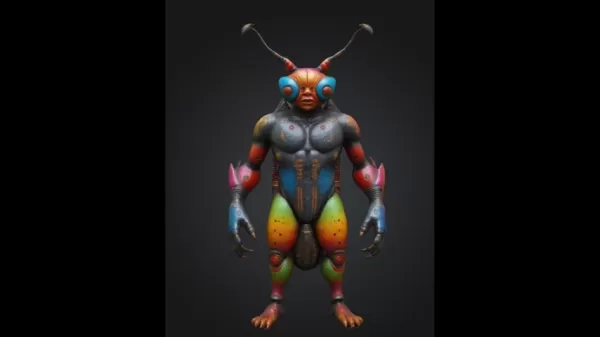 AI Text-to-3D Model Showdown: Meshy vs. Tripo vs. Rodin AI
The world of AI-driven 3D modeling is transforming at a breakneck pace, giving designers and creators powerful tools to turn their ideas into reality. In this article, we'll dive deep into a comparison of three leading AI platforms: Meshy, Tripo, and Rodin AI. We'll explore how each one handles the
AI Text-to-3D Model Showdown: Meshy vs. Tripo vs. Rodin AI
The world of AI-driven 3D modeling is transforming at a breakneck pace, giving designers and creators powerful tools to turn their ideas into reality. In this article, we'll dive deep into a comparison of three leading AI platforms: Meshy, Tripo, and Rodin AI. We'll explore how each one handles the
 Joshua Graham's Words: A Deep Dive into Fallout: New Vegas
Fallout: New Vegas has carved out a niche in the gaming world, not just for its sprawling post-apocalyptic landscape, but for its richly drawn characters and their intricate narratives. Among them, Joshua Graham, also known as the Burned Man, emerges as a figure of profound complexity and depth. His
Joshua Graham's Words: A Deep Dive into Fallout: New Vegas
Fallout: New Vegas has carved out a niche in the gaming world, not just for its sprawling post-apocalyptic landscape, but for its richly drawn characters and their intricate narratives. Among them, Joshua Graham, also known as the Burned Man, emerges as a figure of profound complexity and depth. His
